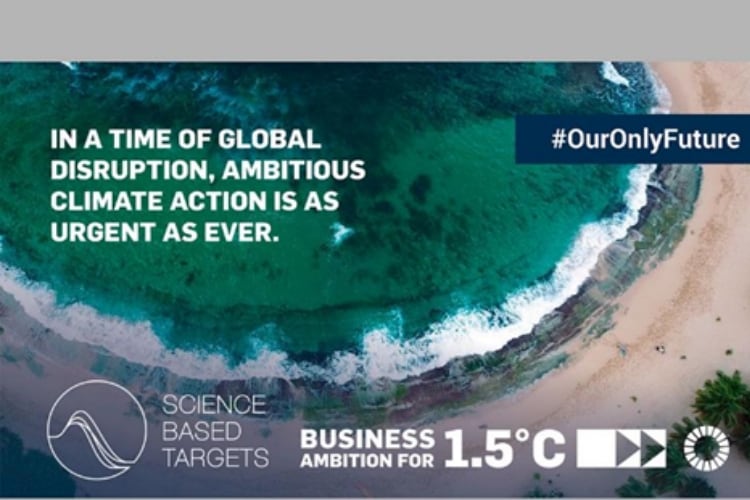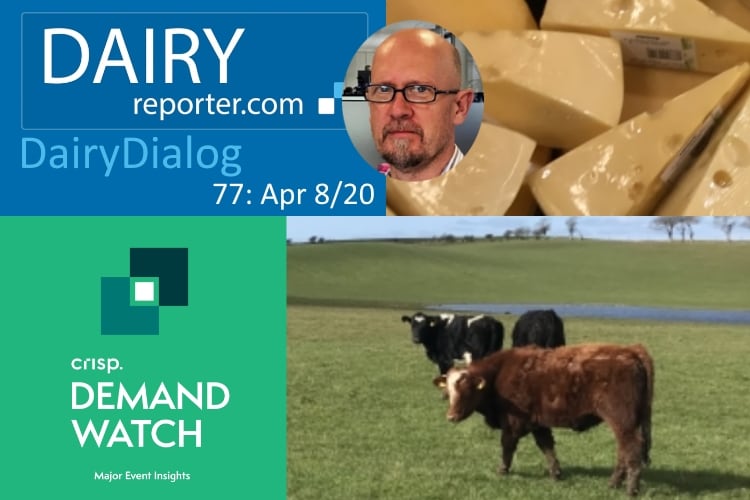Pics: (Computer) Getty Images/simpson33; (field) Tate & Lyle; (pizza) Royal DSM
Tate & Lyle announces new environmental targets
Tate & Lyle PLC, a supplier of food and beverage ingredients and solutions, has announced a set of new environmental targets and commitments.
The targets are aligned to the delivery of Tate & Lyle’s purpose, Improving Lives for Generations, a key pillar of which is to care for the planet and protect its natural resources for the benefit of future generations.
Tate & Lyle’s new environmental targets are, by 2030, to deliver a 30% absolute reduction in Scope 1 and 2 CO2e emissions, with an ambition to reach 20% reduction by 2025; a 15% absolute reduction in Scope 3 CO2e emissions; for 100% of its waste to be beneficially used, with an ambition to reach 75% by 2025; and a 15% reduction in water use.
In adopting these targets, Tate & Lyle said it is committed to eliminate the use of coal from its operations by 2025; establish its Scope 1, 2 and 3 CO2e emissions reductions as Science-Based Targets; and maintain sustainable acreage equivalent to the volume of corn Tate & Lyle buys globally each year, currently 1.5m acres, and through partnerships accelerate the adoption of conservation practices.
Tate & Lyle has linked the pricing of its $800m revolving credit facility, extended in May 2020, to the delivery of its new Scope 1 and 2 CO2e emissions, beneficial waste and water reduction targets.
Scope 1 emissions are direct emissions from owned or controlled sources, while Scope 2 emissions are indirect emissions from the generation of purchased energy. Scope 3 emissions are other indirect emissions such as the growing and production of purchased materials, including corn, and transportation of purchased fuels and other goods.
Nick Hampton, chief executive at Tate & Lyle, said, “There has never been a greater need for businesses to address the climate change crisis. One of the key pillars of our purpose of Improving Lives for Generations is to care for our planet and with our new environmental targets and commitments we are taking decisive action to protect our planet’s natural resources for the benefit of future generations.”
Anna Pierce, director of sustainability at Tate & Lyle, said, “These stretching new targets demonstrate our steadfast commitment to integrate sustainability into our day-to-day business activities, processes and culture.”
Progress will be measured and published in Tate & Lyle’s annual report.
DSM launches new mozzarella cheese cultures
Royal DSM, a global science-based company active in nutrition, health and sustainable living, has launched new DelvoCheese CP-500 cultures for boosting the yield and resource efficiency of mozzarella cheese production.
Capable of achieving a higher moisture content in mozzarella, the range increases yield by up to 1.3%, compared to the most commonly used Direct Vat Set (DVS) culture in the US.
These cultures also enable cheesemakers to deliver products with superior taste and texture that consumers will enjoy and are ideal for creating mozzarella cheese for pizza, offering a mild buttery flavor, excellent stretch and melt behavior and reduced browning for an enhanced eating experience.
The cheese industry today has experienced a sharp rise in demand for mozzarella cheese in a range of product formats, including shreds, slices and cubes. The global pizza cheese market, for instance, is expected to grow at a CAGR of 5.04% between 2020 and 2027, which will continue to fuel demand for mozzarella in the coming years.
To navigate this evolving commercial landscape, producers must create tasty cheese that will retain a firm texture and sliceability throughout shelf life. Increasing the capacity and speed of cheese production is also crucial to safeguard the profitability of their operations.
Commercial testing has shown that the DelvoCheese CP-500 range enables cheesemakers to overcome these challenges by increasing moisture content, offering the fast acidification expected by producers and a consistent performance in terms of texture — maximizing yield and improving the consumer pizza eating experience.
When combined with DSM’s Maxiren XDS fermented chymosin coagulants, the range enhances yield further, allowing manufacturers to optimize raw material efficiency and achieve high whey quality.
“It can be a complex challenge for cheesemakers to meet rising consumer demand for high-quality mozzarella cheese products, while continuing to be economically and operationally efficient,” said Evandro Oliveira de Souza, business lead for cheese at DSM.
“We’re committed to offering unique, stand-out products that not only look and taste good, but are also better for both consumers and customers. For that reason, DSM is delighted to introduce this new extension of our portfolio of culture solutions, which will help our customers set a new standard for yield in cheese production and deliver market-leading end products.”
DSM has decades of experience in the cheese industry and can help cheesemakers worldwide produce high-quality, great tasting cheese products efficiently, effectively and in a sustainable way. This is achieved through DSM’s cultures, coagulants, cheese protection and ripening solutions, bio-preservatives and residual antibiotics tests.
Alongside the DelvoCheese CP-500 cultures, DSM’s expanding portfolio of solutions for mozzarella cheese includes DelvoCheese CP-120 cultures, and Fromase XLG and Maxiren XDS coagulants. This is complemented by DSM’s expert services, including application support, process analysis and optimization, and tailored phage rotation management that can help brands reduce production costs, improve product quality and increase fermentation consistency.
DSM’s capabilities and portfolio in support of the cheese and dairy industry have recently been further strengthened by the acquisition of specialty dairy ingredients company CSK.
Crisp Business Dashboard
When doing business with large retailers and distributors, it’s critical for organizations to understand details about their sales performance, inventory, and more so they can identify areas that need their attention and explore opportunities to improve or expand.
Crisp’s Business Dashboard automatically interprets supplier portal data and visually reveals the hard-to-see details hidden in organizations’ own operational data. Through graphs, charts and maps, data critical to business is brought into clear visualization, US-based company Crisp said.
The company said large retailer and distributor portals and syndicated data providers offer valuable information organizations can use to optimize their business. But the data is hard to retrieve, tedious and time-consuming to work with - making it nearly impossible for organizations to extract meaningful, actionable information in a timely way.
The Crisp Cloud takes information from large retailer and distributor portals, turning complicated, hard-to-understand raw data into clear and insightful visualizations. Easily identify trends, opportunities and potential trouble spots.




